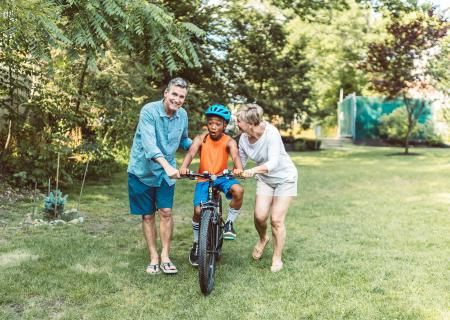This content mentions loneliness or isolation, death or bereavement and anxiety, which some people may find triggering.

As the lockdown restrictions eased, her lack of friends and family meant that she really didn't have anyone to support her or empathise with how she was feeling. She talks about the things she did, like having a walk in the park and getting a dog, had a huge effect in dealing with her feelings of loneliness. As Carol says "there's nothing to be ashamed of in feeling this way."
My name's Carol and I'm in my sixties. I'm retired and live in Norfolk. I lost my husband suddenly just before lockdown and, in moving to a new area, found loneliness made my feelings worse.
I don’t think we deal particularly well with death and bereavement as a society. I know it can be a very lonely place. People who I thought were good friends seemed to disappear overnight - as though dying might be contagious - or because they didn’t know what to say or do.
My husband died in May 2019. He was a lot younger than me, so I didn’t expect him to die first. I didn’t expect to be a widow or alone as I reached retirement age. Six months after he died, I moved to a new area. So I experienced bereavement and lockdown in a place where I didn’t really know anyone. I found lockdown and bereavement a real battle.
Return to normality?
I think people underestimated the impact of lockdown on people in my position. If I hadn’t had Zoom, I think I’d have had a breakdown - it was the only contact I had with others. I didn’t want to get up some days. I didn’t see I had a future. I started drinking a little bit more and started to have more anxiety.
But as restrictions lifted, and people began to talk about a return to normality, for many of us that sense of loneliness grew. People were throwing open the doors of their homes and welcoming back family and friends, but I had no family and only a few friends but none who lived nearby.
There were times when I felt like I didn’t want to go on, and that I had nothing to live for. I haven’t shared that with anyone because it sounds so dramatic and drastic, but that is how I felt. I didn’t acknowledge how low I was, and I know I put on a bit of a front. And I didn’t go to the doctor because I didn’t want to take medication.
I realise now there’s no shame in it. It’s important to be open and not worry about what people think. But that is a difficult thing to do when you’re feeling low.
It takes courage
I’m a lot better now. Some of the things that made a huge difference to me were the smallest of things - getting outdoors and going for a walk. I also got a dog.
I joined some local groups - a mindfulness class and a bereavement support group run by The Good Grief Trust. Being part of the group for other bereaved people was a huge turning point. I looked forward to the Wednesday lunchtime virtual Good Grief Café because it was an hour when I could connect with other people who understood what I was experiencing and I knew I wouldn’t be judged.
Starting to do yoga again has been wonderful too. Through that class, I’ve met someone else there who is a widow, which has helped and we’ve been out for a coffee - it’s good to find people who understand my situation.
I also started writing a journal to help get rid of some of the feelings of uselessness and hopelessness. Putting pen to paper and writing down my thoughts and feelings helped with my grieving too.
Be a friend to yourself
My message to others would be to find ways to be a friend to yourself.
I just wish I’d asked somebody for help - how different things might have been if I’d popped over to my neighbours and said ‘I’m feeling a bit down today, do you mind if we have a chat on the doorstep?’.
Getting out into the open air and into nature makes a huge difference too. I’m fortunate to live only five minutes from a beach and even if I’m there on my own, it’s a reminder there’s a bigger world out there. I take photos and it’s really nice to look back at and to think ‘that was a nice moment’. It reminds me there are still lots of things to live for because the world does go on.
If you feel affected by the content you have read, please see our get help page for support.

Read stories about people like you

Help us to help you
Make a donation
If you found Carol's story helpful and you would like to make a contribution to improving mental health for future generations, please consider a donation.
Donate now